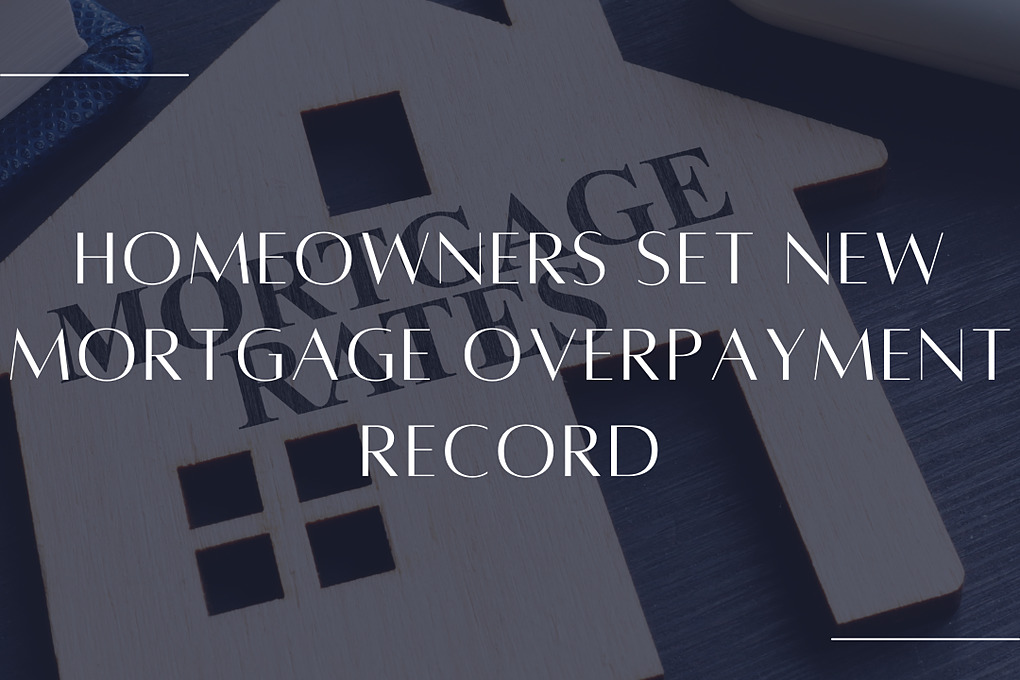In an effort to counteract increasing mortgage rates, homeowners are making an unprecedented number of mortgage overpayments to minimise their debt.
In the last quarter of 2022, homeowners made a record £6.7 billion in mortgage overpayments, surpassing £6 billion for the first time since records began in 1999. The Equity Release Council reports that the total value of mortgage overpayments reached £23.3 billion in 2022.
This spike in overpayments is a reaction to rising interest rates as the Bank of England attempts to control stubbornly high inflation. By overpaying their mortgages, homeowners can reduce their outstanding debt and mitigate the effects of higher borrowing costs.
Mortgage overpayments refer to any payments above the standard monthly repayment amount. These can be made as a one-time lump sum or by gradually increasing monthly payments throughout the mortgage term. Most lenders permit annual overpayments of up to 10% of the outstanding balance without penalty, with some allowing up to 20%.
The primary advantage of making mortgage overpayments is the reduction of interest paid over the mortgage's lifetime. For instance, on a £200,000 mortgage over 25 years at a 4% interest rate, increasing monthly repayments by £100 could save over £18,000 in interest and shorten the mortgage term by three years and five months.
Other benefits of mortgage overpayments include counteracting rising interest rates, lowering the loan-to-value (LTV) ratio, and increasing eligibility for payment holidays. Overpayments can help homeowners qualify for better mortgage deals or lower mortgage rates by moving into a lower LTV tier.
Both lump sum and regular overpayments have their merits, but the key is to choose what is affordable. One-time overpayments have a more significant impact on the mortgage. For example, on a £200,000 mortgage at a 4% interest rate, an initial overpayment of £20,000 could save £30,179 in interest and shorten the mortgage term by almost four years. In comparison, monthly overpayments of £100 on the same mortgage could save only £18,020 in interest and reduce the term by three years and five months.
The decision to make mortgage overpayments comes down to personal financial circumstances and priorities. Homeowners should carefully consider their budget, potential savings, and long-term goals before committing to any overpayment strategy.
If reducing the mortgage term and interest payments is a priority, making overpayments is a viable option. However, it's essential to assess any other outstanding debts or financial obligations, as it might be more beneficial to address those first.
Additionally, homeowners should ensure they have an emergency fund in place before committing to overpayments. In times of financial uncertainty or unexpected expenses, having a safety net can provide peace of mind.
When choosing between a lump sum or regular overpayments, homeowners should consider the impact on their budget, potential interest savings, and desired mortgage term reduction. One-time overpayments typically have a more significant effect on the mortgage, but regular overpayments may be more feasible for some homeowners.
In conclusion, making mortgage overpayments can offer several advantages, including reduced interest payments, a shortened mortgage term, and better mortgage deals. Homeowners should carefully evaluate their financial situation and priorities before deciding on an overpayment strategy that best suits their needs.
 Like
Like